Should we feed our native birds? The answer is not so simple.

CONSIDER THESE TWO typical Australian garden scenes. In one, a boisterous rainbow lorikeet flock squabbles and squawks over a mass of brilliant crimson bottlebrush blossoms. In the second, a pair of lorikeets nibbles delicately at a pile of minced meat placed on a bird table for magpies, which are looking on warily from a nearby fence.
Before categorising these scenes as either natural versus unnatural or even good versus bad, consider some additional information. That bottlebrush is one of the visually spectacular Callistemon cultivars developed from plants native to Western Australia’s arid interior but manipulated to flower year-round, with blooms twice the normal size and producing much more nectar than usual. It’s heaven for any bird with a ‘sweet tooth’ and lorikeets – as well as miners, wattlebirds and friarbirds – love them. These avian nectar-lovers have rushed en masse into suburbs across the country now festooned with seemingly ‘birdfriendly’ native plants. And they’ve done it to such an extent that rainbow lorikeets have become one of the most abundant bird species in every large city in the country. The notorious noisy miner is another native that’s prospered, to the detriment of countless smaller species. For many of us, planting all those callistemons, grevilleas and banksias supporting this urban avian life was an attempt to provide native bird habitat. In the end, however, we’ve often ended up with plenty of birds but not so much species diversity.
It may not seem like it, but growing these plants is a form of bird-feeding. And it’s promoted and supported by all the relevant bird, conservation, environmental and government agencies, even if they vigorously oppose regular bird-feeding.
This story is from the {{IssueName}} edition of {{MagazineName}}.
Start your 7-day Magzter GOLD free trial to access thousands of curated premium stories, and 9,000+ magazines and newspapers.
Already a subscriber ? Sign In
This story is from the {{IssueName}} edition of {{MagazineName}}.
Start your 7-day Magzter GOLD free trial to access thousands of curated premium stories, and 9,000+ magazines and newspapers.
Already a subscriber? Sign In
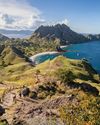
SULAWESI SENSATIONS
There are worlds within worlds and marvels untold waiting to be experienced on Indonesia's remote islands.
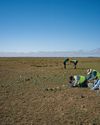
SEARCHING FOR AUSSIE DINOSAURS
Our understanding of where to find ancient life in Australia has been turned on its head by a new appreciation of the country's geology. Now the world is looking to our vast outback as the latest hotspot to locate fossils.
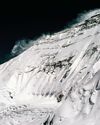
THE HARDEST NIGHT
The first Australian ascent of Mt Everest in 1984 is one of the great feats of mountaineering. Climbed by a small team semi-alpine style, with no bottled oxygen, via the Great (Norton) Couloir, it remains unrepeated 40 years later.
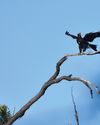
WEDGE-TAILED WONDER
The chance discovery of an eagle nest leads to an extended vigil observing normally hidden behaviours of one of nature's supreme winged marvels.
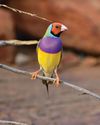
BURDENED BY BEAUTY
Northern Australia's Gouldian finch survives in huge numbers in cages around the world, but its wild population continues to struggle.
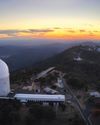
A TELESCOPE FOR A GOLDEN AGE
After a stellar 50 years as one of the country's major scientific assets, the AAT continues to play a major role in keeping Australian astronomy on the world stage.
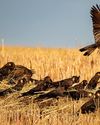
COCKY WHISPERING AT COOMALLO CREEK
This patch of remnant bush on the edge of the West Australian wheatbelt is a place loved by one of Australia's rarest bird species and the man who has studied the site for more than 50 years.

A PIONEERING PAIR
Louisa Atkinson and her mother, Charlotte, were among Australia's earliest authors, and pioneers in women's rights.

THE LONGEST WALK
Lucy Barnard is walking from Argentina to Alaska -the length of the Americas - on an extraordinary journey of endurance and adventure.
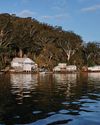
SECLUDED, BUT NOT ALONE
In an era of heightened social isolation, where many of us lead lonely lives, Dangar Island offers the chance to be part of a supportive, connected community.